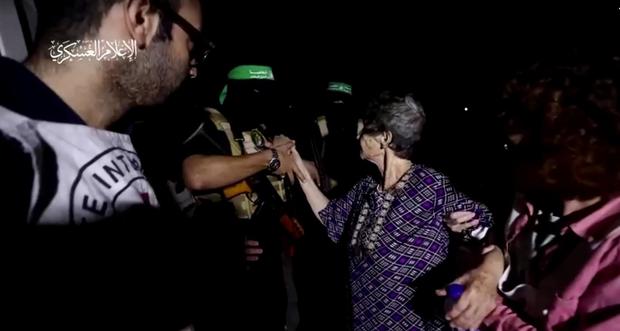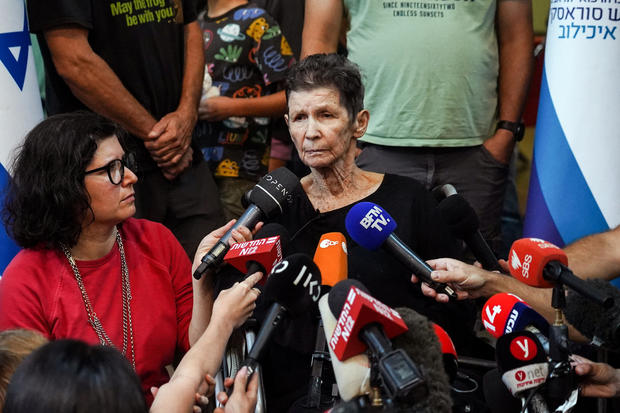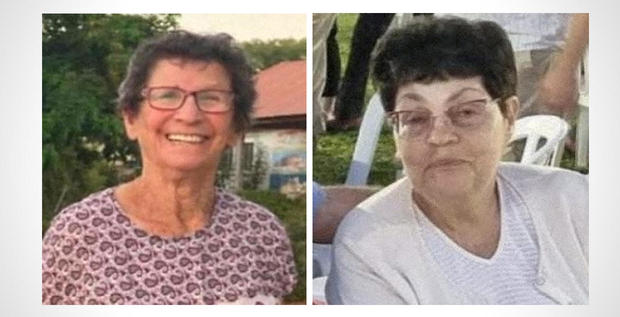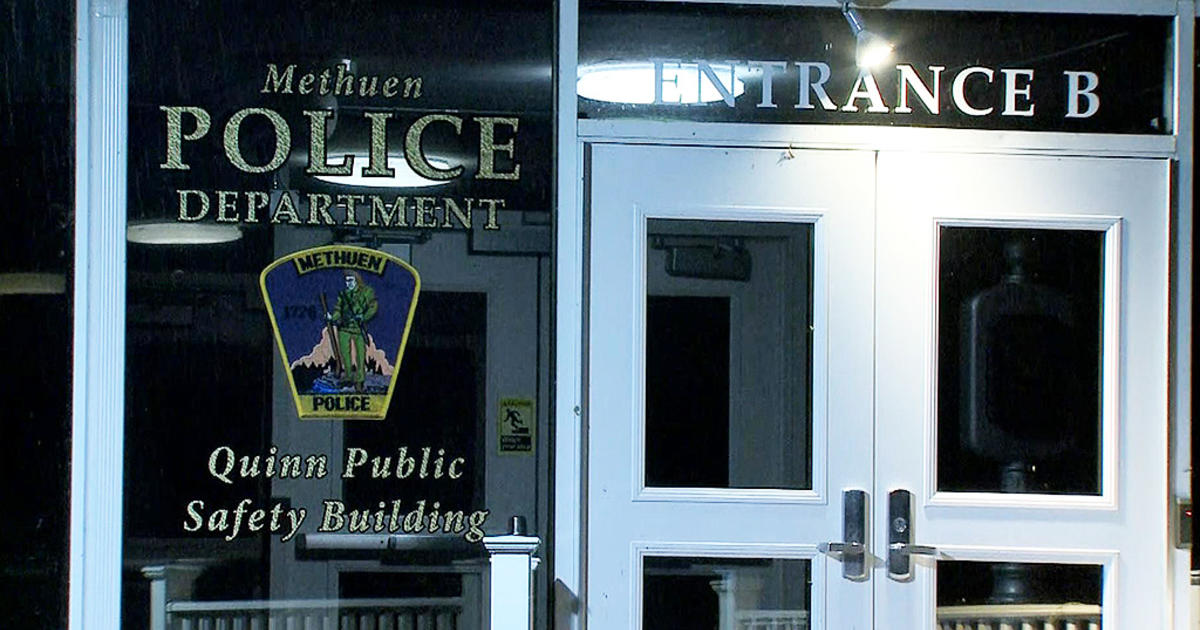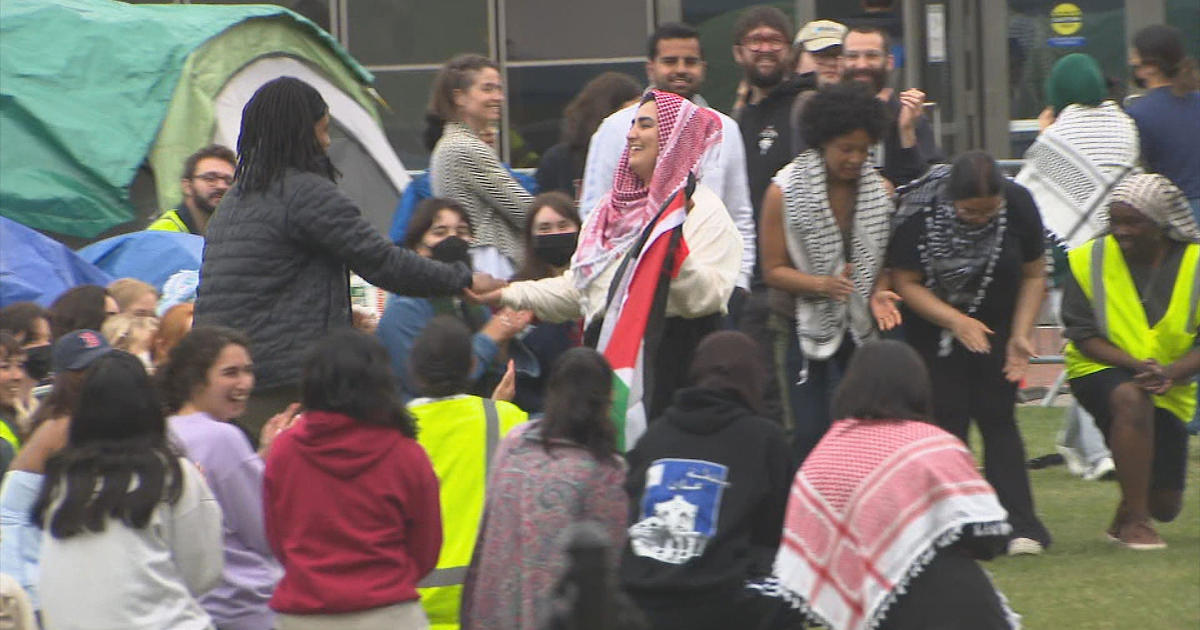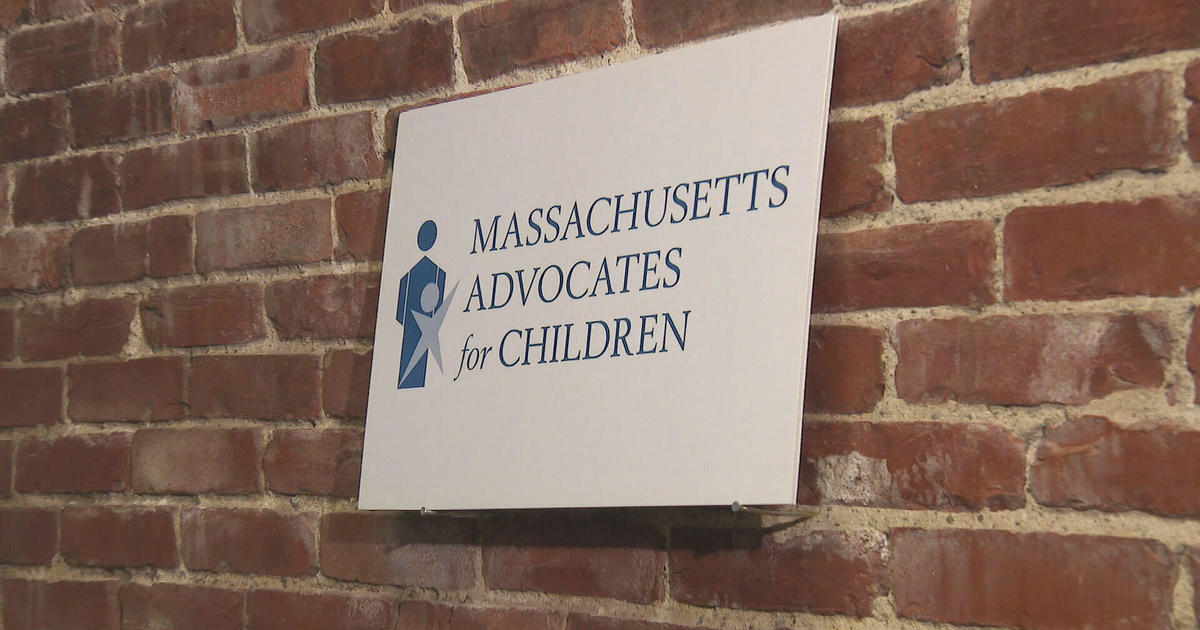Israeli hostage released by Hamas, Yocheved Lifshitz, talks about ordeal, and why she shook her captor's hand
Yocheved Lifshitz, one of two elderly hostages released Monday by Hamas, told journalists Tuesday morning that she "went through hell" and was beaten on the day she was captured, but that she shook the hand of a Hamas militant as she was returned because she was treated well in captivity.
Lifshitz was abducted with her 83-year-old husband Oded from their home at the Nir Oz kibbutz, close to the border with Gaza, but Lifshitz said she was not held in captivity with Oded, who remained missing on Tuesday.
Hamas said it had released Lifshitz, 85, along with 79-year-old Nurit Cooper, on health grounds late Monday. The Palestinian group, long listed as a terrorist organization by Israel, the U.S. and many other nations, is still holding more than 200 people hostage after its unprecedented October 7 rampage across southern Israel.
Israeli officials say the group killed more than 1,400 people in its initial siege and with its ongoing rocket attacks from Gaza. Health officials in Hamas-ruled Gaza said Tuesday that more than 5,700 people had been killed by Israel's airstrikes, but Israel disputes that figure.
Lifshitz and her husband are longtime human rights activists and her family has said they've both worked with a local organization that helps bring injured Palestinians to area hospitals. Video of the moment she was handed over from her Hamas captors on Monday shows her shaking hands with one of the militants and saying, "shalom," a traditional Hebrew greeting meaning "peace."
At a news conference Tuesday alongside her daughter Sharone, Lifshitz described how Hamas militants "stormed, beat, kidnapped without distinction between young and old," on the day of the October 7 attack.
"They kidnapped me and laid me on my side on a motorcycle and flew with me through the plowed fields with a rope on each side of me. During this time, the jewelry was taken off my body," a frail-looking Lifshitz said, seated in a wheelchair.
She added that the Hamas attackers had easily broken through a protective electric fence around her kibbutz, which she said Israeli authorities had installed.
Sharone Lifshitz, who was helping translate her mother's remarks from Hebrew into English, said her elderly mother had been struck with sticks by her abductors and brought by Hamas through what she described as a "huge network of tunnels underground… like a spider web."
The 85-year-old woman said that when she and the other captives she was with were first taken into the Hamas tunnels, "they said they believe the Quran and they will not harm us."
She said a doctor was present and would visit the hostages every few days, bringing required medications, and that Hamas members treated their prisoners "gently" over the two weeks she was held.
When asked why she had shaken the hand of one of her captors, Lifshitz said they "met all our needs. They seemed ready for this. They prepared it for a long time and prepared all the needs that women and men need."
Despite what she described as humane treatment, Lifshitz made it clear that her ordeal "was very difficult," and that it wouldn't be something she quickly put behind her, saying: "I have everything in my memory all the time."
Lifshitz sharply criticized the Israeli military for allowing the attack to happen in the first place.
"We were the scapegoat. The army and the state abandoned us. They [Hamas] burned our fields, sent fire balloons, crowds came," she said, referring to smaller scale Hamas attacks in the months and years before October 7. "The army did not take it seriously."
The head of Israel's military intelligence agency has personally taken responsibility for failing to detect and thwart the brutal Hamas attack, which some analysts believe was planned almost openly by the militants for many months.
